Once, on the panel of the Australian equivalent of BBC's Question Time, broadcast from the Sydney Opera House, I was asked to name a dangerous idea, in front of a huge and largely hostile left-wing audience.
I said (gasp) that the most dangerous idea in human history was that Jesus Christ was the Son of God and rose from the dead.
Let me explain why I said this. It has a lot to do with this time of year.
Can there be a more British season than Advent? Especially when the frost bites in the garden, the fog collects on the streets and the short days become darker, the entire landscape is filled with the anticipation of Christmas.
But it is a reward we must wait patiently for. We know that we must overcome the gloom before the joys—and perhaps even happiness—will come.
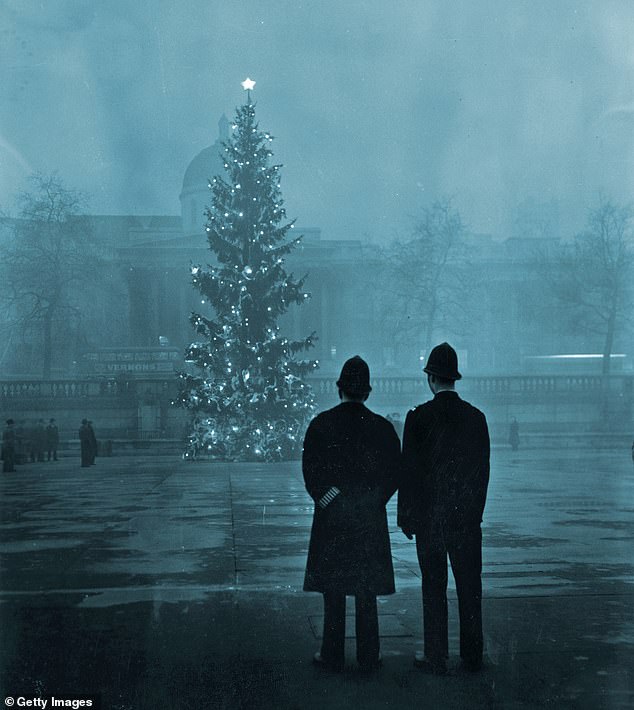

December 1, 1948: Two police officers view the 20 meter high London Christmas tree, a gift from Norway, illuminated in Trafalgar Square, in front of the National Gallery
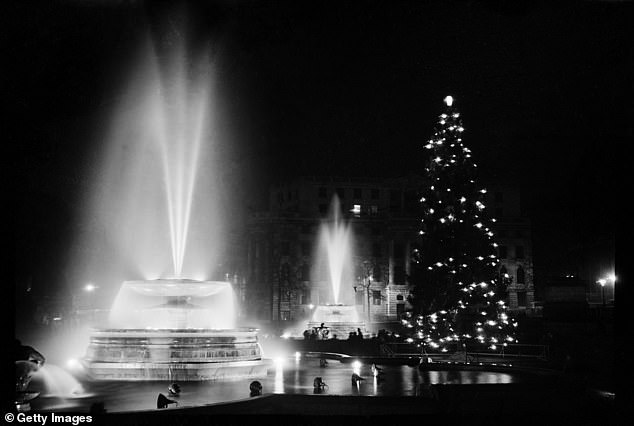

Fountains and the Christmas tree in Trafalgar Square, London, December 1948
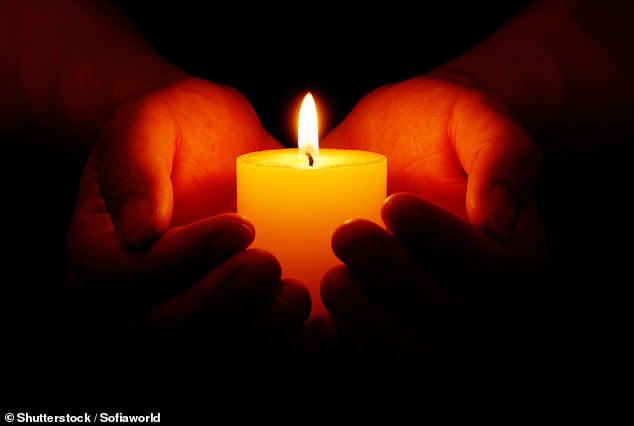

Christmas is a light that shines in the darkness far away, but what use is such a light if there is no darkness?
Yet Advent has receded from our minds in recent years. The last vestige of this is the Advent calendar, nowadays usually completely secular and stuffed with chocolates to keep the children interested.
But interested in what? Christmas is a light that shines in the darkness far away, but what use is such a light if there is no darkness?
The sharpness and blackness of winter have been brightened and softened by artificial light and central heating. Our cities now radiate so much brilliance that millions of people spend much of their lives without ever seeing the stars. I'm as happy to be warm as anyone else, although I think we could get by just fine without so much artificial light.
But we have lost something that was very valuable and that we could try to get back, especially for our children.
Last week I saw on social media a deeply moving photo of London in early December 1948. It shows two real helmeted police officers admiring the Christmas tree that Norway sends every year as a thank you for British help and support during the Second World War.
The darkness that night wasn't just literal. Just like now, these were dark and troubling times. The world was still full of danger and division. That winter, the Western powers were busy confronting Josef Stalin's implacably evil Soviet Union in Berlin with the astonishing airlift that would ultimately break the Red Army's siege of the city.
The last traces of freedom and democracy were erased from the snowy streets of Prague by a communist coup. The newly established State of Israel had just fought its way into a bitter war over former British colonial territory, in the Holy Land itself, kicking off decades of conflict that has lasted until now.
Britain, bankrupted by the war, only survived thanks to a US-Canadian loan that we wouldn't pay off until 2006. And that was on top of the World War I American loans to us, which remain unpaid to this day (a fact that almost no one believes, but it's true).
The towering spruce in the photo was only the second such tree in what has since become a tradition (and is now apparently threatened due to perceived environmental concerns). The tree is quite skinny by today's standards and the lighting is sparse. But in that time of danger, worry, austerity and shortages, and in the sooty bomb-ridden London of that time, it shone as a good deed in a bad world.
I remember when much of our country looked like this. We weren't rationed when I was growing up, but there wasn't enough either. In the weeks leading up to Christmas, as the days grew shorter, the nights deeper, and the cold intensified, I felt like something momentous was happening. But I didn't really understand what it was at the time.
The sonorous Bible readings we experienced at that time had the effect (on me at least) of making the events surrounding Christmas part of real history.
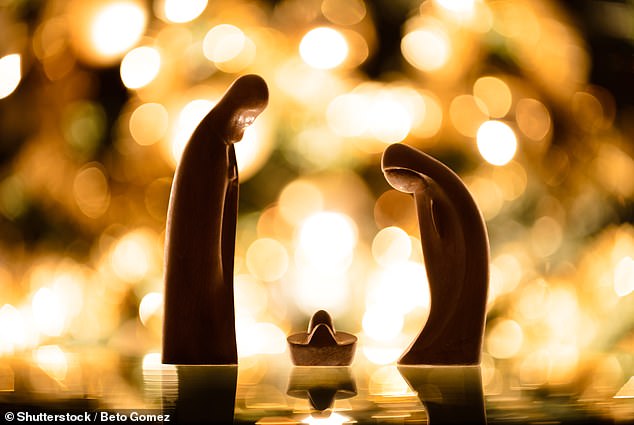

Advent, which I eagerly rushed through as a child, has become better than Christmas in many ways
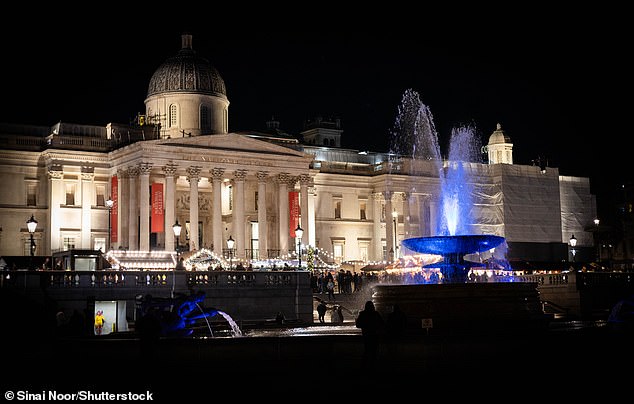

We have lost something that was very valuable and that we could try to get back, especially for our children. (Stock photo of Trafalgar Square)
I can remember sitting in the back of half-lit enormous rooms and listening in amazement to these gigantic prophecies and poetic proclamations, spoken in the clear voice of the authority that the Church of England then still possessed.
The decree of Caesar Augustus that the whole world should be taxed was just another event (albeit a little more distant) in the history of '1066 and all that' that we were then taught, and took its place next to Boadicea ( no 'Boudicca' for us). ) and Caractacus opposing the Romans, Alfred and his cakes, William the Conqueror, Hereward the Wake, Matilda fleeing into the snow, evil King John, the princes in the tower, good Queen Bess and all the rest.
The whole period was exciting and slowly moved towards the expected joys of Christmas.
Yet Christmas itself rarely came close to the vaguely hoped-for joys I expected.
Only once, when through a series of strange odds, my little family actually spent the festive season in a thatched cottage with a Christmas card in a remote Buckinghamshire village, surrounded by yards of deep snow and staying warm by burning the wood my brother and I chopped it, it came close. Now I know better.
I do this partly because of a sermon preached at St. Andrew's Anglican Church in Moscow at Christmas 1991. This Victorian brick church was stolen by the communist authorities during the Bolshevik coup of 1917. I think they used the tower as a machine gun post. They then looted it in the usual communist manner and eventually turned it into a recording studio.
But at Christmas 1991, with the fall of communism, the British community in Moscow got its church back.
After seeing with my own eyes the collapse of a monstrous evil, I was filled at the time with wild hope that we were truly about to enter a new era of peace and prosperity. Fool me more, but you can see why.
And the preacher said that at this time of year “normal time is in step with eternity.” That doesn't last long, but it does happen. And this realization that freezing Russian night has made me understand that it is not a feast, wine or gifts that we expect at Christmas. These are all very good. But in fact, this, the supreme celebration of our half-forgotten faith and culture, is the key to understanding why we are the way we are and behave the way we do.
The cold, the darkness, the fast (if you can face it, Advent is a fast, just like Lent) help us understand that our Christianity is a great national asset, a light that shines in the darkness and that only increases in power and significance. as that darkness thickens.
Advent, which I eagerly rushed through as a child, has become better than Christmas in many ways.
Today I will begin to say daily the great and age-old prayer for this time, in which we ask: 'Give us grace that we may reject the works of darkness and put upon us the armor of light, now in this time . mortal life, in which your son Jesus Christ came to visit us in great humility.”
And I believe he did, and everything changed because of it.
